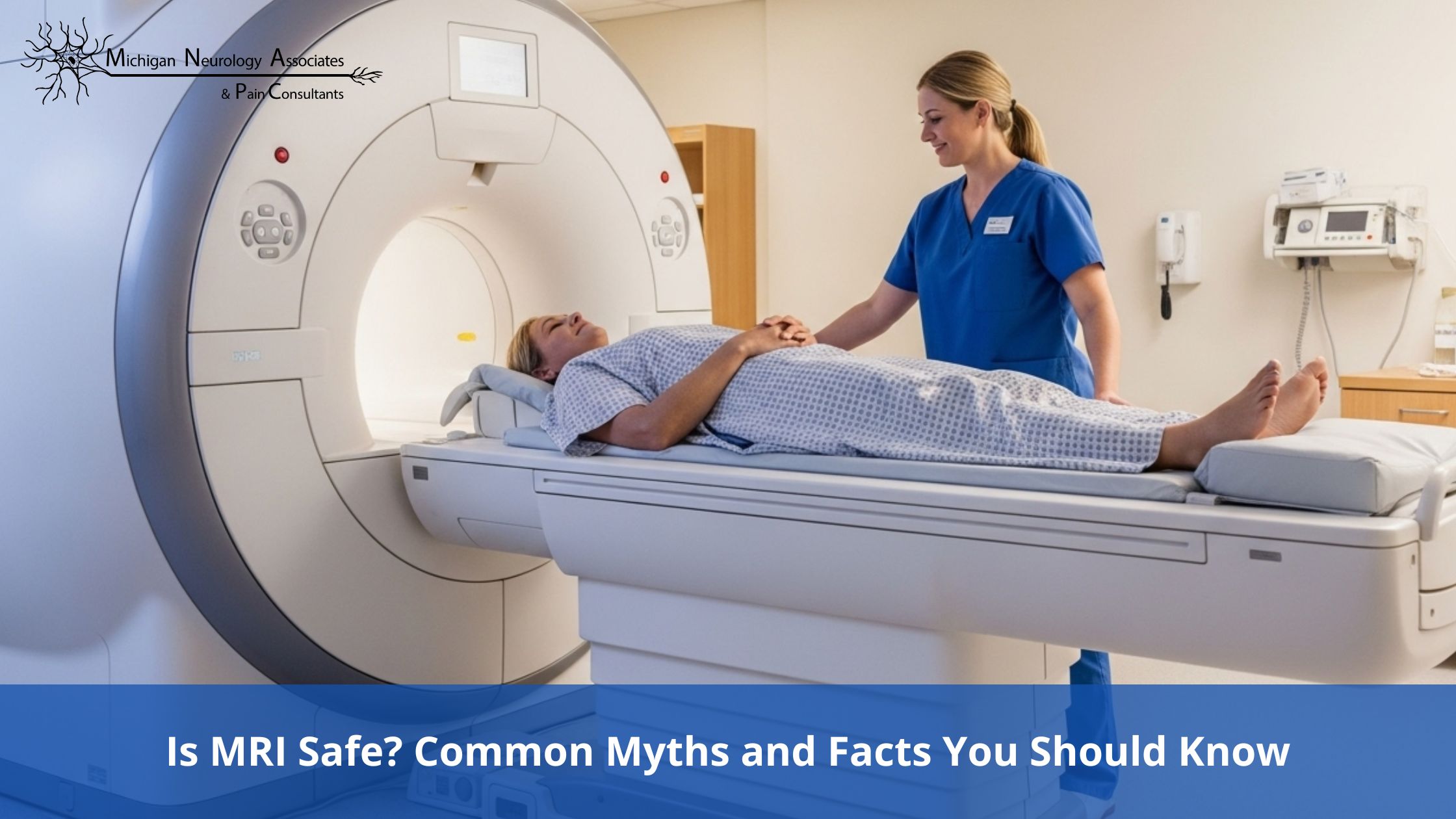



Getting scheduled for an MRI scan can feel overwhelming, especially if it’s your first time. The sight of a large machine, the thought of lying still inside a tunnel, and hearsay about strong magnets or radiation often stir up unnecessary fears. But the reality is very different.
Magnetic Resonance Imaging (MRI) is one of the safest and most advanced diagnostic tools available today. It helps doctors create clear images of your body without exposing you to harmful radiation. Still, misconceptions about safety linger, and these can make patients feel nervous when there’s no need to be.
Let’s bust some common MRI myths and share the facts that will help you feel confident, calm, and ready for your scan.
Fact: MRI does not use radiation. Unlike X-rays and CT scans, which rely on ionizing radiation, MRI works with magnetic fields and radio waves.
Think of it this way: if X-rays are like using sunlight to see inside, MRIs are more like using a magnet and a microphone to pick up signals and create images. It’s a safe, non-invasive way for doctors to see what’s going on inside your body.
Fact: There is no pain involved in an MRI scan. The machine isn’t poking, prodding, or zapping you with anything.
What patients usually notice is:
If claustrophobia is a concern, ask about open MRI machines, which have a wider design and feel less enclosed. Some centers even allow soothing music to help you relax.
Fact: Not all implants are off-limits. While older devices like certain pacemakers or aneurysm clips may pose risks, many modern implants are MRI-compatible.
The key is honesty, always let your doctor know about any implants, surgical clips, or prosthetics before your scan. The care team can quickly check whether your device is safe for MRI. If it isn’t, they’ll suggest another imaging test.
Fact: Studies show no harmful effects of MRI on pregnant women or their babies. In fact, MRIs are often used when doctors need detailed images that ultrasounds can’t provide.
That said, doctors usually avoid MRI during the first trimester, unless absolutely necessary, and they typically skip using contrast dye during pregnancy. The bottom line: your physician will weigh the benefits and risks before recommending an MRI.
Fact: The magnet inside the MRI machine is incredibly strong, but safe when proper rules are followed. The only real risk is if metallic objects enter the scan room. That’s why patients are asked to:
Hospitals and imaging centers take MRI safety for patients very seriously. With the right precautions, the magnet is nothing to worry about.
If you’re scheduled for an MRI, here are some simple ways to make the experience easier:
So, is MRI safe? Absolutely. It’s one of the safest, most advanced, and most effective diagnostic tools available today. While myths about pain, magnets, or pregnancy can make people uneasy, the facts prove otherwise: MRIs carry very few risks when proper guidelines are followed. With the right precautions and expert care, patients can feel confident that an MRI is both safe and highly beneficial for their health.
Worried about MRI scans? At Michigan Neurology Associates & Pain Consultants, we prioritize your safety, comfort, and peace of mind. Our expert team follows strict guidelines to ensure every scan is accurate, safe, and stress-free. Trust us to guide you through the process, answer your questions, and provide care you can rely on. Contact us today to schedule your MRI or learn more.